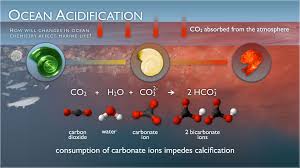BLOOMINGTON, Ind. -- Earth could contain nearly 1 trillion species, with only one-thousandth of 1 percent now identified, according to a study from biologists at…

In case you weren't already worried about the current and rapid acidification of the world's oceans, a new report by leading scientists finds that this…

Changes to the Earth's oceans, caused by extreme volcanic activity, triggered the greatest extinction of all time, a study suggests. The event, which took place…

